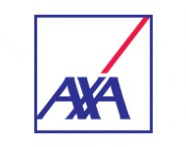Are 'blue bonds' causing a sea change in marine conservation?

Authored by AXA XL’s Stuart Barrowcliff and Lydia Knoll
AXA XL’s PRCB team supporting sustainability with flow of deals, the latest in Gabon
Over the past seven years, an innovative development finance approach that funds conservation in debt-burdened countries has been steadily evolving and is becoming easier to implement. Marine conservation-linked bonds, also known as “blue bonds”, have been successfully issued to support the expansion of marine protected areas (MPAs) and fund conservation trusts in the Seychelles, Belize, Barbados, Ecuador, and most recently, Gabon.
Combined with private political risk insurance, these development finance programs have become a reliable, well-understood way to reduce a country’s debt service burden while dedicating the resulting savings to funding a robust expansion of conservation in the target country. In May of this year, Ecuador announced a debt-for-nature program to expand protections for the Galapagos Islands. Now, this month, a similar program was launched in the West African country of Gabon. Like Ecuador’s Galapagos Islands, one of the most biodiverse MPAs on earth, Gabon’s narrow coastline and adjacent coastal waters are a crucial marine habitat and an important breeding area for vulnerable and critically endangered marine species.
Protecting ocean resources
Gabon is a small nation, with about 2.4 million people and a coastline of 885 km (550 miles). Its wealth of natural resources has helped Gabon develop one of Africa’s highest GDP-per-capita and maintain strong institutional stability. In addition to the biodiversity of its marine and terrestrial areas, Gabon’s resources include petroleum, natural gas, minerals, gold, timber, and iron ore.
Gabon is leading the region in conservation efforts with its 30x30 pledge, a commitment to protect 30% of the country’s oceans, land, and freshwater resources by 2030. The pledge follows Gabon’s 2014 Gabon Bleu initiative, a government-led plan to improve the sustainability of the nation’s coastal and offshore waters and create a network of MPAs. According to Gabon’s Wildlife Conservation Society (WCS), the MPAs established under Gabon Bleu currently represent nearly one-fourth of Gabon’s exclusive economic zone. The coastal ecosystem includes the world’s highest concentration of nesting sites of the leatherback sea turtle, a critically endangered species, as well as breeding and calving grounds for humpback whales and other marine wildlife.
The recent debt-for-nature swap in Gabon grew out of The Nature Conservancy (TNC)’s longstanding (since 2013) relationship with the Gabonese government. In 2016, TNC pioneered debt-for-nature financing in Seychelles which generated funding for marine conservation in the island nation. Then, in 2021, TNC structured a similar program in Belize under which the government of Belize was able to restructure all of its foreign debt in addition to fund conservation. In Gabon, TNC leveraged its experience in Seychelles and Belize and existing environmental protections and commitments in Gabon to bring the recent blue bond transaction to fruition.

How the financing works
While the parties involved will shift from deal to deal, the structure and goal of these development finance programs remains consistent: reduce sovereign debt burdens and create long-term, sustainable funding for conservation. These programs continue to be a collaboration among governments, multilateral development banks, development finance institutions, non-governmental organizations, commercial banks, and private insurers. The public/private partnership is key to these programs’ success; for Gabon, the U.S. International Development Finance Corporation (DFC) partnered with TNC, Bank of America, and private insurers led by AXA XL, to provide conservation management, financing, and insurance to Gabon.
To restructure the $500 million of Gabon’s outstanding sovereign debt targeted for this transaction, a special-purpose vehicle was created to issue blue bonds to fund a loan to Gabon that enables the government to convert (swap) outstanding sovereign debt into marine conservation-linked bonds. To support repayment of the loan and, ultimately, repayment of the blue bonds, DFC underwrote a $523 political risk insurance policy protecting bondholders from non-payment by the government under the loan. To further leverage its risk mitigation impact and offer the required amount of insurance coverage, DFC successfully “crowded in” private sector political risk carriers to provide facultative reinsurance in support of DFC. AXA XL, as it has for similar programs, serves as the lead reinsurer on this DFC policy. Involvement by the DFC and highly-rated private sector insurance partners is important to attract investors for the bonds. Savings from the debt restructuring – expected to total more than $163 over the life of the loan - is allocated to fund Gabon’s marine conservation project commitments.
While such public/private partnerships have only been used for marine conservation thus far, the concept is equally applicable to a wide variety of conservation programs, including terrestrial sustainability projects. Indeed, future deals under consideration around the world include funding for sustainable farming, herding/grazing, and forestry.
AXA XL’s Political Risk, Credit and Bond team is proud to have played a pivotal role in the success of the Gabonese transaction. It is yet another example of the how political risk and credit insurance can promote and add value in development finance efforts, especially in countries with high debt burdens and unstable political environments. These insurance products are making a critical difference in funding resource conservation and sustainability, which is very much aligned with AXA XL’s global commitments to support sustainability and resilience.
About the Authors
Stuart Barrowcliff is an Underwriting Manager in AXA XL’s Political Risk, Credit & Bond team. He joined XL Catlin, now part of AXA, in 2011, where he was a senior underwriter. His career experience includes various executive roles with other insurance organizations and financial institutions. He has a Master of Arts degree in international economics and Latin American studies.
Lydia Knoll is an Associate Underwriter in AXA XL’s Political Risk, Credit & Bond team. She is a Chartered Property Casualty Underwriter (CPCU) and holds a Bachelor of Business Administration degree in international business.
About AXA XL
AXA XL is the P&C and specialty risk division of AXA which provides property, casualty, professional and speciality products to industrial, commercial and professional firms, insurance companies and other enterprises, here in the UK and throughout the world. With underwriting teams based in the US, UK, EMEA and Asia Pacific regions, we can make decisions close to the markets you serve and work with you to tailor cover to your business needs.
We help businesses adapt and thrive amidst change. Rather than just paying covered claims when things go wrong, we go beyond protection into prevention so your business can go beyond the unexpected.

